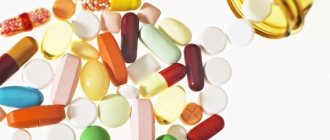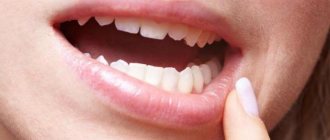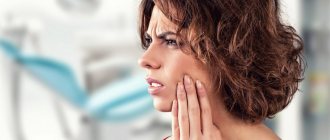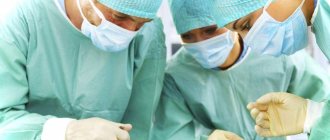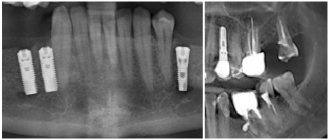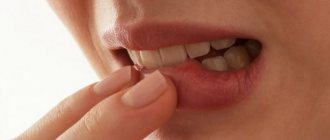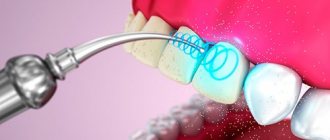Visiting the dentist is a very unpleasant experience. Having headaches after visiting the dental office is a common occurrence. If a doctor removes or prescribes treatment for a diseased tooth, a headache may occur.
The reasons for this may be the following:
- Side effect from medications;
- Severe dental disease;
- Poor oral health;
- A large number of teeth undergoing treatment;
- Poor condition of the body as a whole, the presence of chronic diseases;
- Senile age of the patient;
Most often, pain caused by the cessation of the painkiller goes away on its own. If the pain only gets worse, you need to take an analgesic and consult a specialist for advice.
One of the possible causes of headaches may be the removal of a diseased tooth. Headaches occur especially often when a wisdom tooth is removed (the procedure is not always simple). This type of operation tends to damage bone tissue and gums, which leads to pain.
When correcting a malocclusion, headaches often appear. Pain can be of various types:
- Pain in the ear area;
- The occurrence of pain in the temporal part of the head;
- The occurrence of pain in the occipital part;
If you follow clear treatment instructions, this type of headache goes away in a short time.
Headaches after using anesthesia
Very often, dentists use local anesthesia when treating teeth. After undergoing anesthesia, many patients experience headaches. There are several reasons for this type of pain:
- Presence of intolerance to anesthesia or incorrect choice of medication;
- Location of the diseased tooth in remote places;
Most often, the headache is aching in nature and tends to increase when moving the head.
If headaches began after the extraction of a diseased tooth, it is necessary to find the cause of the pain; it may be a complication of the operation.
General recommendations
The tooth extraction procedure is performed under anesthesia, but often causes anxiety for the patient and can also lead to trouble. To avoid problems, you must follow the recommendations of a specialist.
Preventive measures to prevent undesirable consequences of surgical intervention are as follows:
- You should not lift weights or engage in active physical labor in the first hours after tooth extraction;
- You should avoid taking aspirin after tooth extraction;
- Surgical intervention is not recommended for women on critical days, since bleeding from the socket may not stop for a long time;
- Rinsing is not recommended on the first day after surgery;
- rinse only with warm decoctions or water, never cold or hot;
- It is forbidden to touch the wound at the site of the missing tooth, even with the tip of the tongue;
- a gauze swab applied to the hole after tooth extraction must be removed 15 minutes after the operation;
- you cannot eat for 2 hours after surgery, or better yet 5-6 hours, so as not to infect the wound or provoke bleeding;
- after the allotted time, you can eat soft food that does not injure the gums, the food should be warm;
- It is advisable to give up tea and coffee for a while;
- It is worth abstaining from spicy foods, pickles and marinades for a while;
- alcohol-containing drinks are also undesirable on the first day after surgery, as they dilate blood vessels and increase the risk of bleeding;
- Dentists do not recommend smoking for 2-3 hours after manipulation;
- swimming in hot water and visiting the steam room is prohibited to avoid dilation of blood vessels under the influence of high temperatures;
- There is also no need to be nervous and worried;
- You cannot brush your teeth on the side where the tooth socket is located for at least 24 hours after surgery;
- Avoid general hypothermia of the body.
If, despite following all the dentist’s recommendations, your head still hurts intensely, you should immediately visit the dentist.
Complications are detected using medical equipment and examination and require mandatory treatment.
Headache due to complications arising after dental intervention
Many patients experience headaches after visiting the dentist. Various factors can contribute to the appearance of pain symptoms:
- The appearance of complications that manifested themselves during dental treatment;
- Intolerance and allergic reactions to the use of drugs;
- Contraindications to tooth extraction;
- The appearance of a specific odor in the place of dental treatment;
- The presence of inflammation of the tissues of the oral cavity;
- The presence of swelling of the oral tissues;
Most often, pain occurs in several places. They begin in the jaw and gradually spread throughout the head. Painful sensations can be either sharp or aching. Complications after going to the dentist may depend on the presence of certain diseases in the patient:
- Very often, pain appears in patients suffering from diabetes. The headache may last for a long time;
- Ear disease, which can progress during dental treatment and cause headaches;
- Delay in contacting a specialist, which results in severe diseases of the teeth and gums, which are accompanied by painful symptoms of the head;
After symptoms of complications occur, you must go to the hospital to prescribe effective treatment. The occurrence of headaches may be due to the progression of certain dental diseases. Such as:
- Periodontitis – aching pain occurs in the temporal parts of the head;
- Alveolitis - severe pain occurs that begins in the jaw area;
Reason 4. Side effects.
Fainting can happen regardless of whether you are afraid or not, and you are not taking any scary medications. In this case, they speak of individual intolerance to the drug. By the way, you can also wet yourself there or even do “big things” (I feel like it’s on your list of phobias).
How to fight?
Remember what drug you had a reaction to and ask not to inject it. Such a reaction may not occur with another drug.
Headaches after dental implantation
Pain may occur during the recovery period and after dental implantation surgery. Patients usually experience headaches for several days after surgery. The cause of pain is inflammatory processes in the tissues surrounding the implant. For severe pain, the doctor will prescribe a painkiller. If the pain does not go away within five days, you should contact a specialist who will check the implants for surgical complications and prescribe appropriate treatment.
Allergic reactions
A highly qualified specialist always asks the patient before treatment about possible allergic reactions, both to medications and to everything else. But situations cannot be ruled out when an allergy may manifest itself to one or another substance in the composition of the drug.
How do allergies manifest themselves in the mouth?
The reaction manifests itself in the form of a rash and redness. In difficult cases, difficulty breathing and swelling of the larynx are observed. Again, in any dentistry that values its reputation, there is always a first aid kit with antihistamines, which, in the event of an acute reaction, immediately relieve symptoms.
Treatment methods for headaches after dental surgery
If you have a headache for a long time, your dentist will prescribe treatment using the following medications:
- Anti-inflammatory drugs - help relieve inflammation;
- Analgesics – eliminate pain;
- Antispasmodics – relieve spasms that cause pain;
If the cause of pain is inflammatory processes in the oral cavity, then the presence of toxins, which are eliminated by the use of antibiotics, should initially be eliminated, and only then the prescribed medications should be used.
Taking such medications must be done under the supervision of a physician. The use of such drugs is contraindicated for patients suffering from stomach diseases.
Trauma to the oral cavity during surgery
But, for the patient himself, there are also several preventive rules that should be followed to avoid these complications. These are the rules:
- Tooth extraction should not be performed during inflammation in the body.
- For women, teeth should not be removed during menstrual bleeding and for another 2-3 days after it ends.
- If there are chronic diseases, teeth can be removed only during a period of remission. Under no circumstances should surgery be performed during an exacerbation.
- You cannot remove teeth during even the most minor illnesses - runny nose, cough, and so on.
- The risk of developing a headache after tooth extraction will be significantly reduced if you completely give up alcohol a week before the upcoming operation.
- You should not take painkillers before an upcoming dental operation. This may then negatively affect overall health, since the reaction between the analgesic and the anesthetic used by the doctor is unknown.
By adhering to these extremely simple rules, you can avoid the most severe complications after dental procedures.
When surgically removing teeth, experienced dentists often injure the surrounding soft tissue.
After such procedures, patients complain of pain caused by disruption of nerve endings. Impulses are sent to the brain, which is why a headache occurs after tooth extraction.
The risk of complaints increases with problematic healing of a wound in the mouth. Discomfort manifests itself until the dry socket is completely formed.
Pain may be concentrated on the temples, back of the head and forehead. Sometimes the pain syndrome spreads to the ears, where “shooting” occurs.
In case of such manifestations, it is advisable to consult a doctor again to undergo an examination and prevent unnecessary health risks.
Removal is now a fairly popular procedure, although it causes quite a lot of discomfort. However, if you leave it in place, you can suffer from terrible pain for a long time.
Now there are a large number of methods that are used during treatment. But there are times when removal is optimal.
This is a surgical intervention, based on which there will be certain consequences. This may include injury to the gums, certain injuries to the oral cavity, and headaches.
The latter will be one of the most unpleasant side effects you will have to endure.
After tooth extraction, a headache is a normal occurrence, especially if this moment concerns the wisdom tooth. It appears in a person between the ages of 19 and 25, and in order to pull it out, a lot of effort must be made. They grow in a place where it is quite difficult for a dentist to reach, so additional means are often used to treat them, relieve pain, or remove them.
Of course, thanks to the latest technologies used in dentistry, any discomfort will be reduced as much as possible, and pain will manifest itself to a lesser extent. However, it is almost impossible to completely eliminate the phenomenon of headache after wisdom tooth removal. But there are also tips that you can follow to minimize the feeling of discomfort.
- It is best to carry out removal at a time when the inflammatory process is not occurring. This will minimize the use of anesthesia and, accordingly, avoid symptoms such as headaches. Wisdom teeth will be removed only during a period of rest, then pain and headaches will be reduced to a minimum.
- Pain in the head after the removal of a wisdom tooth appears due to the fact that swelling will occur in the place where the tooth was removed. This is one of the most well-known causes of discomfort. It will indicate that there are some complications or inflammation of the nerve. Most often this happens if the tooth is not completely removed, so the pain will be intense and quite sharp.
In this way, you can save not only your nerves, money and energy, but also your health. If you perform an operation during inflammation, or at a time when the tooth hurts very badly, you can get not only complications, but also a response of the whole body to such an intervention. Of course, it won't be positive.
Relieving pain with folk remedies
If you experience headaches after a recent visit to the dentist, you must first identify the cause of the disease. It is impossible to do this on your own without visiting a doctor. You can use some traditional medicines, but you should consult your doctor before using them.
- Drinking mint tea is good for eliminating cramps and reducing headaches;
- Freshly prepared viburnum juice - drink one hundred grams for headaches twice a day for five days;
- The use of hot foot baths is a proven folk method for relieving headaches;
You should know that the occurrence of headaches after dental treatment may be one of the first prerequisites for the occurrence of more dangerous diseases. Painful sensations mean that inflammatory processes are occurring in the body, so you need to consult a specialist; you should not self-medicate.
Infectious infection
The phenomenon is extremely rare these days, since disposable syringes are used with pre-treatment of the injection site. However, in practice, there are cases when unscrupulous personnel use unsterile instruments.
Sterilization of instruments
To protect yourself, contact only trusted clinics. Also pay attention to the condition of the instruments before starting the procedure (disposable items must be removed from the packaging in front of you).
The complications described are rather the exception. A qualified dentist is obliged to provide pain relief without consequences. But even the fact that side effects occur only in 1-2% of cases does not negate the need to remember them.
Why do you need novocaine?
Novocaine is commonly used during dental procedures. It was developed in 1905 and has become a widely used local anesthetic in the United States. Local anesthesia does not cause unconsciousness before a medical procedure, unlike general anesthesia. People who receive a local anesthetic remain awake during the procedure but do not feel pain.
Novocaine and similar drugs block pain signals that nerves send to the brain. Local anesthetics are commonly used during dental procedures such as tooth extraction or treatment.
They are also used during other minor procedures, including:
- removal of warts;
- cataract removal;
- biopsy, which involves taking a tissue sample for examination;
- insertion of a pacemaker.
In recent years, novocaine has been replaced by new local anesthetics because their action lasts longer.
The dentist injects novocaine into the gum tissue around the affected tooth. Most people experience a burning sensation. This feeling is not caused by the needle, but by the anesthesia entering the tissue. Novocaine acts quickly, and numbness occurs within 5 minutes. At this point, people no longer feel pain, although they may feel pressure or movement around the treated area.
Once the anesthesia wears off, the person begins to feel the gums, and then the lips and tongue. People may have difficulty eating, drinking, or speaking clearly until the numbness goes away.


